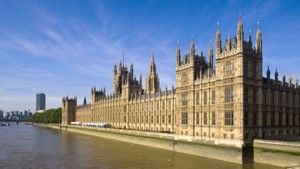Home » Commentary » Opinion » Why Britain could be headed for chaos

 Peter Saunders files the first of his reports on the coming British general election.
Peter Saunders files the first of his reports on the coming British general election.
When the 2010 UK General Election ended in stalemate, and the Conservatives and Liberal Democrats formed a coalition, they agreed on four important constitutional reforms that could have a major impact on what happens this time around.
The first was an agreement to introduce fixed-term parliaments, removing the power of Prime Ministers to choose when to call an election. The aim was to prevent David Cameron from terminating the coalition early at a time advantageous to him. If, as opinion polls suggest, the next election also results in a hung parliament, this fixed term rule could cause problems. None of the smaller parties is keen on another coalition, so the Conservatives or Labour might have to form a minority government.
Under the old arrangements, the Prime Minister could call another election in the hope of gaining a full majority). But under the new law, there is no mechanism by which a Prime Minister with a small or no majority can attempt to strengthen his position. Britain could be heading for a period of debilitating political instability.
The second constitutional change was a referendum on electoral reform. The Liberal Democrats wanted to replace the ‘first-past-the-post’ system, claiming (correctly) that it is unfair on smaller parties. So in 2011, a referendum was held on a proposal to move to an Australian-style Alternative Vote system, but this was rejected by voters.
The third constitutional change — reform of the House of Lords, making 80% of the seats directly elected — also failed when 93 Conservative back-benchers opposed it at second reading. Following these two set-backs, the Liberal Democrats then retaliated by withdrawing support for the fourth measure, a fundamental review of parliamentary boundaries. This means the 2015 election will be fought on the old boundaries which heavily favour Labour. If Labour and the Tories both got the same number of votes, Labour would win up to 40 more seats.
Don’t be surprised if on May 7, the Conservatives win most votes but Labour forms a government.
 Peter Saunders is a Distinguished Fellow of the Centre for Independent Studies.
Peter Saunders is a Distinguished Fellow of the Centre for Independent Studies.
Why Britain could be headed for chaos